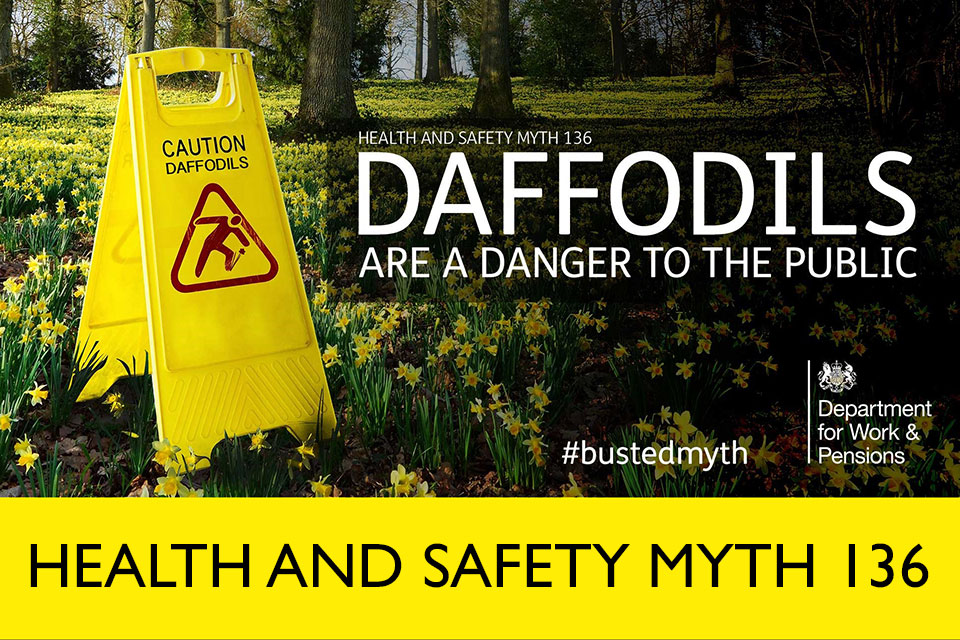Health and Safety Regulations and ‘Barmy Bans’

The Health and Safety act has been in power since 1974 and states how employers have a responsibility to ensure the health, safety and welfare of their employees and also to protect the public from potential risks too. What was once an appropriate set of regulations, which put the employees first, has turned silly and over-cautious.
The seriousness of the regulations has been lacking in recent years, with the public not understanding the full impact of it for employers. For example, similar to Part P of the Building Regulations, failure to comply with Health and Safety Regulations is a criminal offence, which is punishable by a fine of £20,000 or if convicted, they could be sentenced to an unlimited fine.
The media have renamed the regulations ‘elf & safety’ due to some trivial new bans made recently. However this means real risks could be missed! This can cause issues for those when they actually do have serious injuries at work or have noticed a potential risk at work. Employees face not feeling comfortable bringing it to the attention of their employer, which could mean even more accidents!
‘Elf and Safety
Dodgem cars have reportedly been banned from bumping at Butlins, in order to prevent whiplash and broken bones which makes you think – where’s the fun in dodgems that don’t bump? Or how about how sack races have been banned on schools sports day, in case children fall and twist their ankles? Or how the Royal British Legion are no longer allowed to give out pins with poppies, in case people prick themselves?
A hotel chain refuses to provide floor towels for guests stepping out of the bath or shower because of “health and safety” because people could slip over. When really, they are more likely to when there is no towel there.
Meatballs have been taken off the menu at a primary school in Gloucestershire amid fears of pupils choking. Daffodils have reportedly been removed from a village green because they were “dangerous”.
East Riding Council has put a ban on flying kites on a series of beaches (Bridlington and Hornsea), in case someone is struck by one! They have even gone one step further to fine kite-flyers £500 if seen. There’s been reports of bus drivers refusing to let one passengers with hot drinks because of health and safety, yet there are no laws against drinks on buses.
In one school, pupils have recently been stopped from using the monkey bars in playgrounds, in case they fall and graze their knees. These ‘barmy bans’ are a result of the schools and employers trying to avoid accidents, but it also needs to be questioned how far they are pushing the line of Regulations. Even the government has jumped on board to help bust the ‘elf and safety’ myths and put the public’s mind at ease.

Important Health and Safety Regulations for Trades
There are various regulations which can apply to many different companies and positions. Below, we have explained just a few that are included in the Health and Safety Regulations, but arguably the most important and frequently referenced ones.
Regulations such as the Workplace (Health, Safety and Welfare) 1992 is one that is applicable to all companies, where the employer must provide even the simplest things such as heating, appropriate lighting, ventilation, toilet facilities etc. Whereas the Manual Handling Operations Regulations 1992 can apply to only those where items are moved by hand and require a certain amount of strength, but also carry a high risk. This regulation can apply to many of the trade industry jobs, due to the risky nature.
Management of Health and Safety at Work Regulations 1999
Arguably the most notable and recognised regulation, it was introduced in 1993 and benefits everyone. Employer duties include: making ‘assessments of risk’ to the health and safety of its workforce and to act upon risks they identify, in order to reduce the risk factor; appointing competent people to oversee workplace health and safety; providing employees with information and training on health and safety; and utilising a written health and safety policy.
Manual Handling Operations Regulations 1992
This regulation is one that many of the ‘elf & safety’ changes have stemmed from, with one council banning its workers from lifting a pensioners TV, because it could hurt their backs. As advised, employees should avoid doing any manual handling activities which carry a risk of injury. The regulation states that employers should make an assessment of manual handling risks to reduce the risk. Displaying the weight of loads is necessary as it tells the workers how much they can handle before risk of injury.
Workplace (Health, Safety and Welfare) Regulations 1992
Covering a wide spectrum of issues and affecting majority of the workforce, this regulation requires employers to provide: adequate lighting, heating, ventilation and workspace (and keep them in a clean condition); staff facilities, including toilets facilities and refreshments, as well as safe access.
Personal Protective Equipment at Work Regulations 1992
This is relevant to those in trade industries, employer must supply employees with free of charge protective equipment and clothing, where risks can’t be controlled. This includes: gloves, ear defenders, protective footwear, face masks, goggles, safety helmets, etc.
Health and Safety (Display Screen Equipment) Regulations 1992
Do you spend more than an hour at your desk in front of a computer? Then this regulation is relevant to you. If you use Display Screen Equipment (such as a computer) for more than an hour or more continuously or make daily use of it, you are covered! As a worker, you must ensure you take long enough breaks from the computer. Employers must provide regular free eye tests and adjustable furniture (such as desks, chair, foot rests, etc).
Electricity at Work Regulations 1989
Requires those in control of electrical systems or installations to ensure they are safe to use and maintained in a safe condition. This relates to Part P of the Building Regulations, where it requires all electricians by law to comply.
Electricians! Remember that any electrical shock injury requires immediate removal to hospital or medical attention due to the severity of it.
If you enjoyed this article, then take a look at our essential electrical safety equipment!
Back to blog



